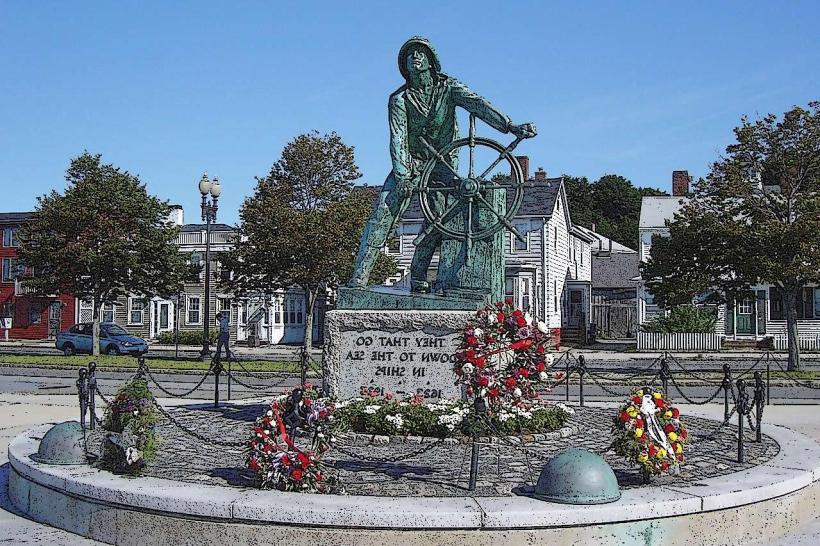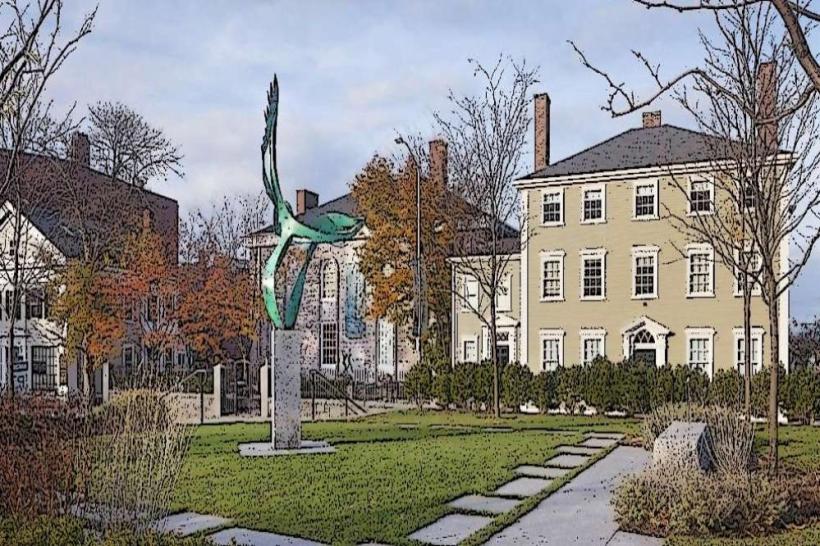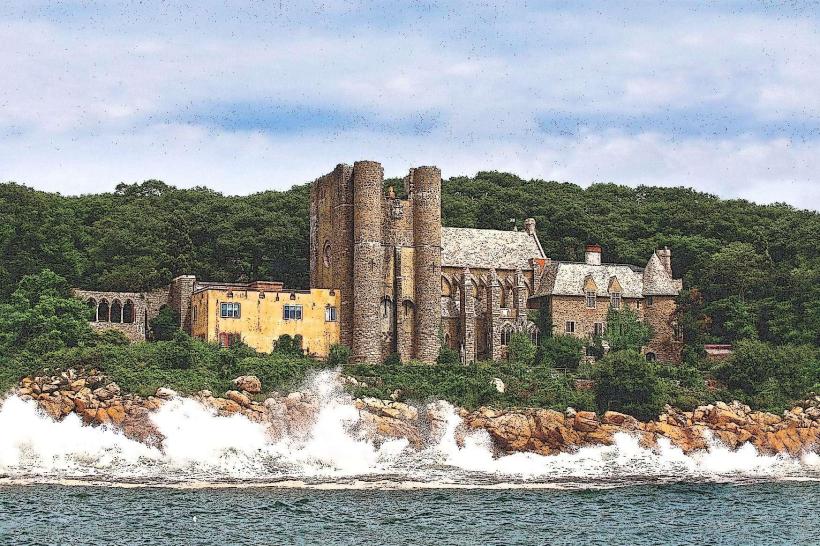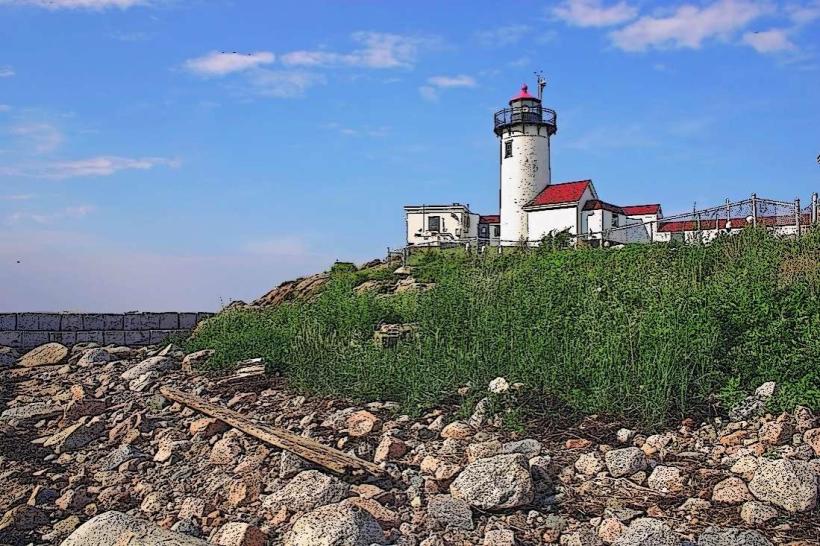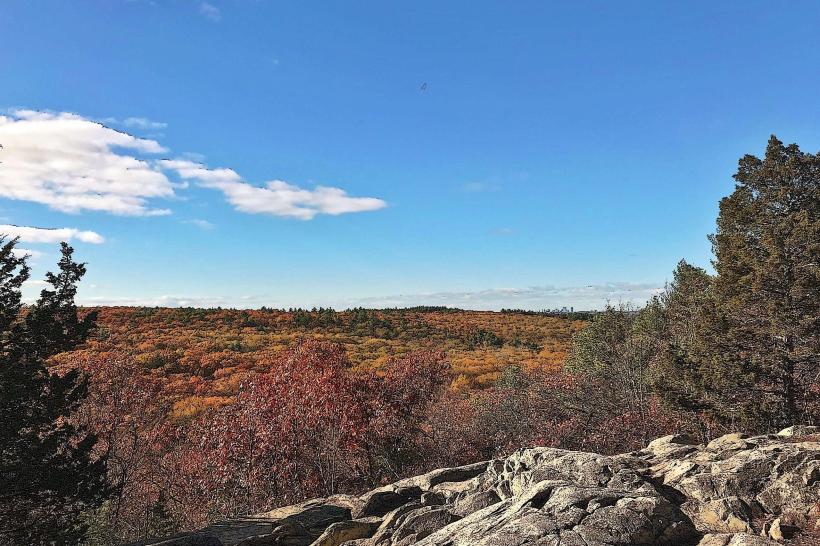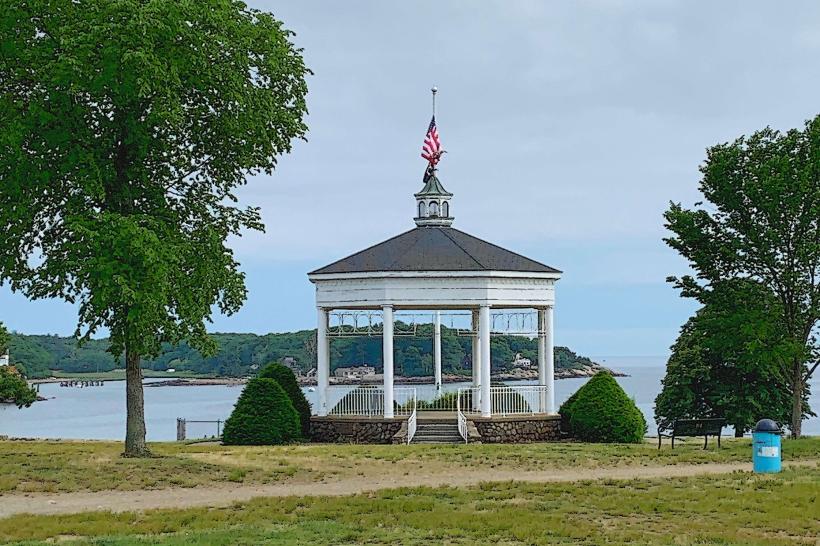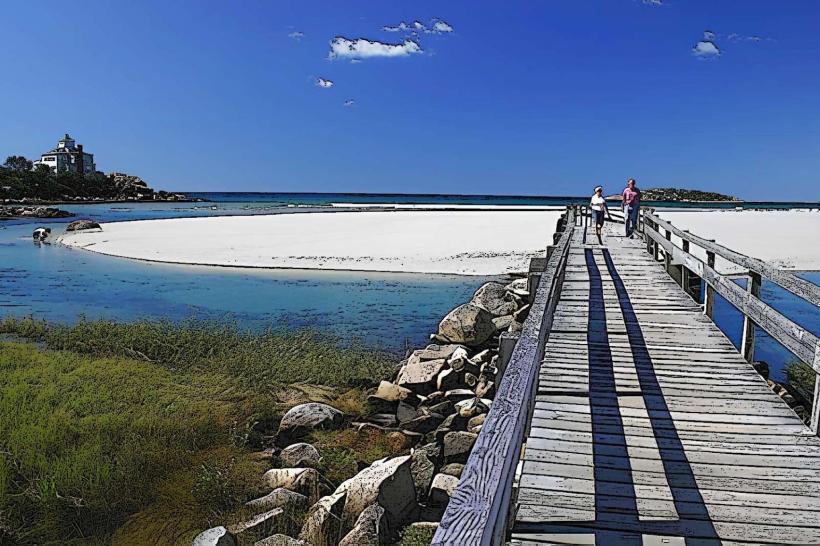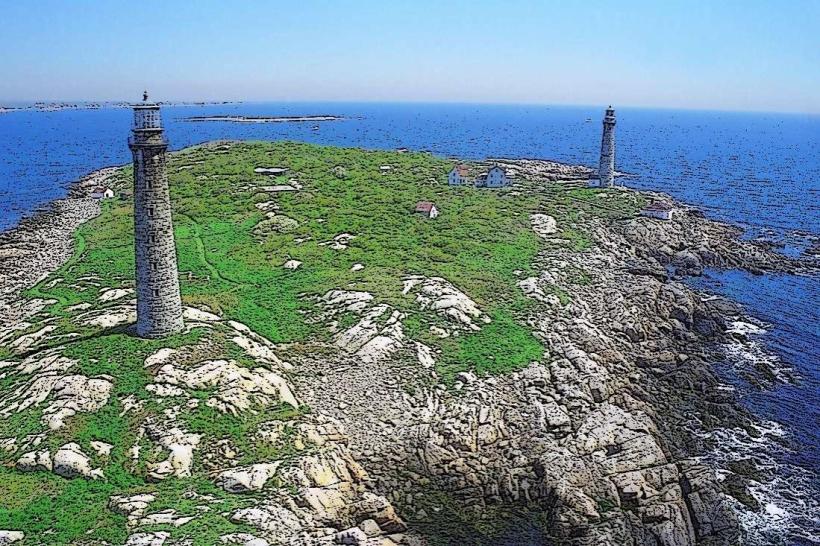Information
Landmark: Rocky Neck Art ColonyCity: Gloucester
Country: USA Massachusetts
Continent: North America
Rocky Neck Art Colony, Gloucester, USA Massachusetts, North America
Rocky Neck Art Colony, located on a small, rugged peninsula extending into Gloucester Harbor, is one of the oldest continuously operating art colonies in the United States. Nestled within Cape Ann’s historic fishing community, it has served as a vibrant cultural enclave for painters, sculptors, writers, and craftspeople for nearly two centuries. Its enduring charm lies in the interplay between its working harbor, coastal light, and the deeply personal presence of artists who live and create there.
Historical Roots
Rocky Neck’s story as an art colony began in the early 19th century. Drawn by the extraordinary quality of natural light, maritime scenery, and the colorful bustle of Gloucester's working harbor, artists began arriving in increasing numbers by the 1840s. This was an era when seacoast colonies became havens for artists seeking authentic subject matter and atmospheric inspiration.
By the mid-1800s, Fitz Henry Lane, a master of luminism, had already begun capturing the harbor’s quiet drama in his marine landscapes. Later decades saw the arrival of major American Impressionists and modernists such as:
Winslow Homer
Childe Hassam
John Sloan
Stuart Davis
Edward Hopper
Marsden Hartley
Cecilia Beaux
Milton Avery
Jane Peterson
Emile Gruppe
Their work helped define American art movements that captured the vitality of everyday life and nature’s dynamic qualities. Writers like Louisa May Alcott and Rudyard Kipling also found solace and inspiration on the Neck.
This cultural bloom transformed Rocky Neck into a thriving creative community by the late 19th and early 20th centuries, integrating art with Gloucester’s salty authenticity.
Present-Day Artistic Life
Today, Rocky Neck continues to function as a working art colony, not merely a historical site. It is home to an evolving collective of painters, potters, photographers, jewelry makers, mixed-media artists, and performers, many of whom live, work, and exhibit their art right on the peninsula.
At the center of this activity is the Rocky Neck Art Colony (RNAC), a nonprofit organization that oversees cultural programming, gallery exhibitions, educational initiatives, and artist support.
Key Features:
Gallery 53 on Rocky Neck: A cooperative gallery showcasing the work of member artists year-round.
The Cultural Center at Rocky Neck: Housed in a former 19th-century meetinghouse, this beautifully preserved Carpenter Gothic building now hosts juried exhibitions, lectures, film screenings, and community gatherings.
Studio Walks and Open Houses: Especially active in the summer, the colony welcomes visitors into artists’ studios for informal conversation, live demonstrations, and direct art purchases.
Artistic Programs and Events
Rocky Neck Art Colony fosters a sense of shared creative purpose through its diverse programs:
The Goetemann Artist Residency: This prestigious program invites visiting artists from around the world to spend several weeks living and working on Rocky Neck, often culminating in public exhibitions or artist talks.
Rocky Neck Now: An annual members' exhibition that highlights the current work of dozens of local artists across media.
Workshops & Lectures: Topics span visual arts, photography, sculpture, and even writing-taught by seasoned artists for all skill levels.
Art Walks & Talks: Seasonal events that bring the community together to celebrate and explore art in an accessible and informal setting.
Rocky Neck Historic Art Trail
One of the most enriching ways to explore the colony is by walking the Historic Art Trail. This self-guided walking route identifies twelve key sites and studios that inspired artists between 1850 and 1950. Stops include:
The former studio of Fitz Henry Lane
Hopper’s favored painting locations
Historic boatyards and piers that served as Impressionist subject matter
Interpretive signage and maps help visitors retrace the artistic footsteps while enjoying the sea breeze, harbor views, and narrow winding streets.
Connection to Maritime Heritage
Unlike many art enclaves, Rocky Neck is tightly interwoven with the life of the harbor. It’s bordered by lobster traps, sail lofts, marinas, and working boatyards-most notably, the Gloucester Marine Railways, one of the oldest operating shipyards in the country (since 1859). This close relationship between working-class maritime tradition and artistic introspection gives Rocky Neck its distinctive character.
Rather than isolated from daily life, artists here are surrounded by real-world grit and salt air-something that continues to influence the authenticity and originality of their work.
Visiting the Colony
A walk through Rocky Neck is both sensory and cultural. The peninsula is narrow, intimate, and best explored on foot. What you’ll encounter:
Dozens of galleries: With shifting hours depending on season, but most active between May and October
Outdoor sculpture displays: Set in front of homes and galleries
Waterfront cafes and seafood shacks: Offering picturesque spots to relax and absorb the harbor scene
Street musicians and seasonal performances: Sometimes informally staged during art events
The entire area is highly photogenic-colorful buildings, boats, nets, and studio windows covered in paint splatters or sea glass.
Summary
Rocky Neck Art Colony is a living tapestry of American artistic heritage, layered with nearly two centuries of creativity. It has been home to some of the country’s greatest painters and continues to nurture fresh talent through exhibitions, residencies, and community engagement.
Unlike larger museum districts or tourist-focused art centers, Rocky Neck remains personal, walkable, and rooted in both art and life. It's a place where you can wander from a lobster dock to a painter’s easel in a single block-where the rhythms of the sea echo through every canvas, carving, and poem.
Whether you're a collector, a curious traveler, or an artist seeking inspiration, Rocky Neck offers an experience both deeply New England and universally human-an invitation to witness creativity in its most grounded, communal, and enduring form.

